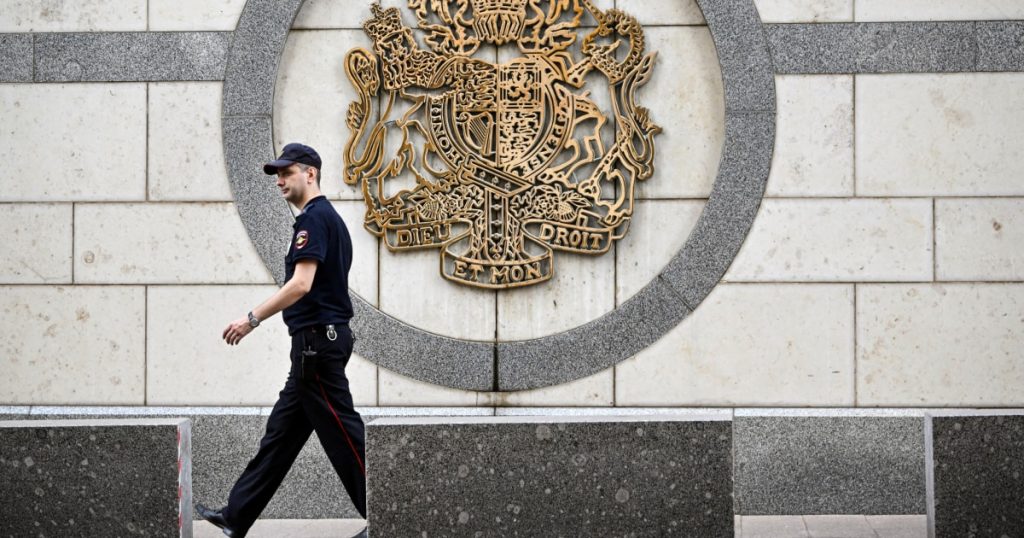Russia’s FSB security service revoked the accreditation of six British diplomats in Moscow, accusing them of spying and sabotage work. This move was seen as a response to the U.K. expelling the Russian defense attaché and removing diplomatic status from Russian properties. The U.S. expressed support for Ukraine in its conflict with Russia, but did not directly address the issue of long-range missiles. Russian President Vladimir Putin warned that allowing Ukraine to strike Russian territory with Western-made long-range missiles would escalate the conflict, and the Kremlin stated that Putin’s message to the West was clear.
Western sources believe that Iran provided ballistic missiles to Russia for use against Ukraine, prompting expedited talks on Ukraine’s long-range missile use. The FSB claimed that a British foreign office department was coordinating efforts to escalate the political and military situation with the aim of ensuring Russia’s strategic defeat in its war against Ukraine. British officials dismissed the accusations as baseless and stated that they were unapologetic about protecting national interests. The decision to terminate the accreditation of the British diplomats heightened tensions between Moscow and London.
British Prime Minister Keir Starmer’s visit to Washington to advance talks on using British Storm Shadow missiles in Ukraine further fueled speculation on the possible provision of long-range strike capabilities to Ukraine. Sources suggest that a decision may be made at the UN General Assembly. The United States appears set to approve the use of long-range missiles by Ukraine as long as they were not provided by the U.S. Russian state TV named and showed photographs of the six expelled UK diplomats, alleging that they were engaged in intelligence activities inside Russia.
The FSB claimed that the British diplomats recruited Russian teenagers, organized provocations, and held talks with opposition figures in the British ambassador’s Moscow residence. They were also accused of working with Russian activists to create divisions in Russian society. The Russian Foreign Ministry criticized the British embassy’s activities, stating that they went beyond diplomatic conventions and were aimed at damaging the Russian people. The tensions between Russia and the U.K. reflect a broader geopolitical struggle in the region, with implications for the conflict in Ukraine.
The expulsions of British diplomats illustrate the growing distrust and hostility between Russia and Western countries. The escalation of tensions comes amidst ongoing conflicts in Ukraine and concerns over the potential use of long-range missiles. The involvement of Iran in providing ballistic missiles to Russia adds a new dimension to the conflict, as Western powers consider their response to the evolving situation. The outcome of discussions between the U.S., the U.K., and other stakeholders could have significant implications for the conflict in Ukraine and broader geopolitical dynamics in the region. Russia’s decision to expel British diplomats and accusations of espionage further complicate the diplomatic landscape, highlighting the deepening divisions between Russia and Western powers.












